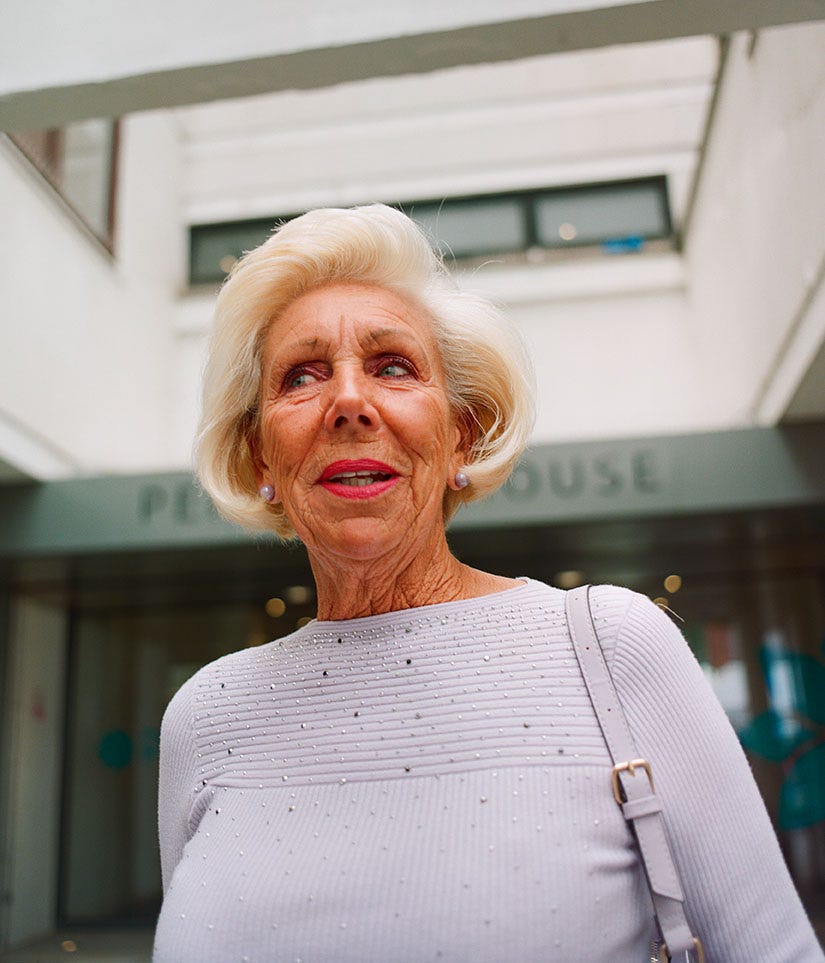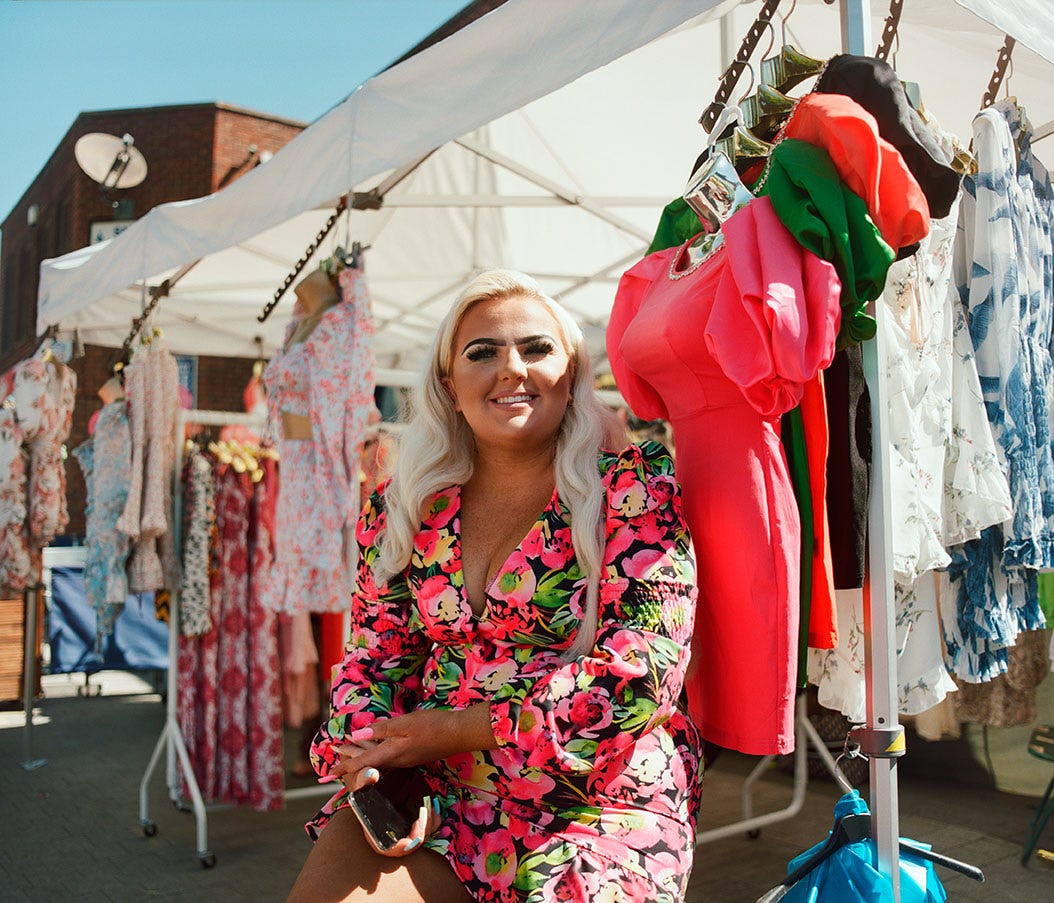Hello! Welcome to Common People. Make yourself at home.
We’ve got a load to get through this month including reports, jobs, mentoring and a brilliant interview with Essex photographer Amy Ryall all about documenting local people and culture, so let’s get straight into it. No messing about.
In The News…
Creative Access released a new report which shows the struggles of working class creatives are vastly underestimated by decision makers in the industry. Almost half of upper middle / upper class respondents agreed that social mobility is “easier than ever” in the UK, when in fact it’s at its worst in over 50 years. EVEN THE SUITS AT GOLDMAN SACHS ADMITTED IT!
Enjoy the strange poetry of Zooey Deschanel denying nepotism by describing nepotism.
Big news! One of our community members Laura launched comms agency Work & Class this month, describing itself as “the first agency to focus its entire mission on changing the narrative for Working Class people both inside the industry and within its creative campaign work”.
The UK’s creative industries bring in more revenue than cars, oil and gas. So why do we keep cutting arts education?
Allow me to break the fourth wall for a moment to say I (me, Tom) spoke to Class Distinction about clothes, clubbing, culture, creativity and Common People. Listen on Spotify.
Working Class filmmakers spoke to The Big Issue about why it’s so difficult to get ahead in the film industry. Even though we all know the answer, it’s still pretty shocking to read people’s personal stories.
Shelter’s beautifully celebratory Made in Social Housing campaign starring Suggs, Yinka Bokinni and Eddie Marsan is well worth a watch.
Useful Stuff...
Would you like to mentor a media student from Manchester College? If you’re in animation, motion design, illustration, 3D game art, graphic design or broadcasting, Ideas Foundation would love to hear from you. Mentoring can be done remotely, too.
Or could your company offer a work experience placement? YourGamePlan (you may remember them from The Pitch, featured in last month’s newsletter) are currently looking to get 430 talented young people into brands, media agencies and creative agencies. UK-wide. Contact danny@yourgameplan.co.uk if you can help.
We had a lovely call with I Like Networking recently. They’re a useful resource for grants, funding and networking opportunities for underrepresented talent in the creative industries. Give them a follow.
We love the look of Converge at Northumbria, an innovative and inspiring scheme tackling mental health challenges through creative education.
While we’re in the North East, Resident Advisor are looking for somebody to cover the electronic music scene in Newcastle.
Q&A with Amy Ryall
Amy Ryall is a photographer from Essex whose portraits of the people of Pitsea grabbed our attention and warmed our hearts this month.
From the cafes to the butchers, the shoppers, market traders and characters, Amy shows local people happy and comfortable in their environment. Viewed together they tell a positive story of community, familiar in towns and streets across Britain, that’s rarely captured with such sincerity by our creative industries.
Amy also hosts photography workshops in the area, encouraging everyday people to get creative with the tools they already have. We sensed some shared values, so we reached out to Amy for a chat.
Amy, tell us about your photobook, Pics Island.
Pics' Island is the title of my self-published book documenting my time as 'Artist in the Field' in a town called Pitsea in Essex. I grew up just down the road in a neighbouring town called Corringham. That didn't mean much in terms of familiarity as I barely knew Pitsea. This project was about me getting to know the people and place, I was more of an outsider trying to get in.
The programme was funded by Arts Council and I was commissioned by an affiliate company called Creative Basildon. The purpose was to engage and explore different themes affecting the community, through socially engaged practice and innovative exploration. Over the course of two months I documented as many characters as I could, jotting down notes and stories, and convincing strangers to let me be a part of the over 50s community club. I spent hours hanging out around the famous market area and roaming the streets with my camera.
The end result had to be something tangible, as many people that I spoke to were from older generations and didn't have a phone or access to the internet. Pics’ Island was released to give something back to the people that made the project possible. The book is mostly made up of portraits and names, capturing a moment in time in this very place called home for the people in the book. It's a story of life in the borough.
How did you approach people to photograph, and what kind of reactions did you get?
I'm a people person so talking to strangers is something that comes quite natural to me. Despite also being from Essex, I got a lot of push-back from people as to why I would want to photograph them and what it was for. Having the backing of a commission and its purpose had some weight, but for the most part people voiced complaints at me since they presumed I was working with the Council. This had become a running joke by the time the fifth person had asked if I could get the local swimming pool back.
My medium format camera was definitely a conversation starter, sometimes for good reason as it often sparked a nostalgic feeling. Seeing it propped on top of a tripod made some of the locals cautious that I was filming them, the market traders in particular really didn't like that. So there was a lot of explaining myself and my intentions and trying to reach people on an honest level and at times that means being vulnerable even as the instigator.
For the most part, like everyday life, it was about giving people the time of day to have a conversation and all you can do is hope that by the end people would feel comfortable enough to allow me to photograph them. I realised a lot of younger people were not keen on being in front of the camera, which says a lot about how image conscious children have become growing up in a social media centred society. Shooting on film helped with this to some degree, since the photos weren't readily available to be looked at.
What was the most surprising thing you learned during the project?
There are stories wherever you go if you take the time to look for them and there will always be people willing to tell them if you give them the chance. Really important stories too, ones that need telling in order to to live on, like what a place used to be like before houses and shops came along and changed the landscape. Stories of how before the economic crisis hit there were so many pubs that you couldn't walk five minutes before landing on another one or how the market had lived in several locations before it found its way to where it is now. There's a lot of history to explore. I think it's important that the older generations have a voice to share their stories.
What do you think makes this part of Essex special?
Like a lot of places in Essex there's a Working Class culture that really bonds people. There's something really heartwarming about social clubs still existing, affordable pints and regular catchups with the same old crowd. Places like this are all about community and making the most of what you've got and I think human connection is the most important part of that. Living in a town with neighbours helps foster community spirit and with that comes an element of safety and reliability.
My Dad's neighbour Dot will always check in on my Dad and vice versa, leaving a spare key with each other and sharing meals. That's really special. I also love the drop-in culture, where you can just pop in on someone unannounced for a cup of tea, often entering through the back gate which is quite standard in these parts. There are a lot of people still moving out to areas like Pitsea, since it's not far from London and offers more affordable living. It's helping these rural towns to grow in culturally diverse ways.
And tell us about the smartphone photography workshops you did recently. Doesn't everyone know how to take a photo on their phone these days?
Surprisingly no. I asked someone to take a photo of me at a wedding recently and my head was cut off and the angle was far from flattering. It's the only photo I'm in that day but it brought about a deeper thinking that people could really benefit from being shown how to take a decent photo. The phone cameras are really great these days and even as a dedicated analogue photographer I'm starting to embrace the phone camera since it's always with me.
I was commissioned by Start Thurrock to create a series of photography workshops for their Green Light festival, with all events being free and open to the public. Originally there were various ideas floating for this, like cyanotype, polaroid and analogue workshops but it was integral to find something that was accessible for all. Most people have access to a phone and would be able to participate without the need of a professional camera. There was a focus on portraiture and how to create an effective image with some simple tips and tricks. We used the community settings available to us, such as libraries and sheltered hosing to take pictures of one another which were then edited and printed. It was a great opportunity to work collaboratively with the public and everyone left having learned something new. It was a special moment for me to give something back to Thurrock where I grew up.
What advice would you give somebody curious about documenting their local people and culture?
Allow people to tell their story. As a photographer it's important to recognise the power we have in portraying a version of events and when it comes to documenting authenticity is integral. My approach to representing authentically is to spend time getting to know your subject, it's surprising how little time is actually spent shooting. I think it's important to really live and breathe a place if you want to get to know it. There's something special that's born from routine and repetition that grounds you there.
The most important advice I've learnt which I still battle with is to just to start. My project on Pitsea actually started two years before I received the commission. I began taking photos of people at the market very casually which formed my research and gave me inspiration. It also meant when the commission came up I knew it was exactly what Id been looking for. I think its important to let go of imposter syndrome, there are no rules to determine who can or can't document a culture. It's easy to get caught up in the technicalities but in the end none of that really matters. The most important thing is that the work gets started, no matter how long it takes to finish, just start.











